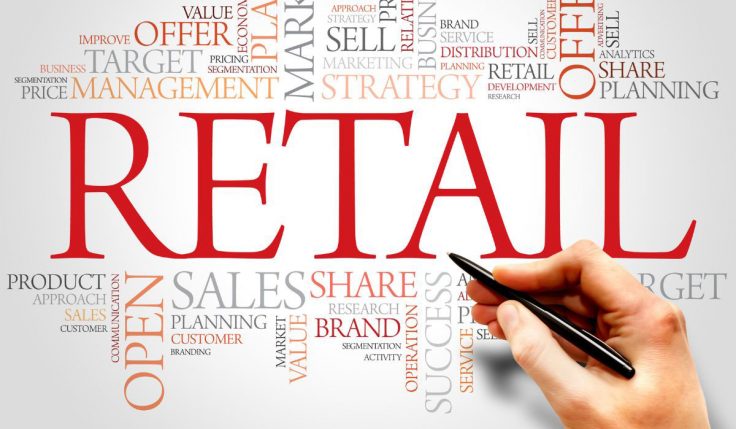Retail management occupies a prominent role in the dynamic world of business, driven by the ever-changing consumer landscape and the intricacies of supply networks. An MBA in Retail Management provides students with a strategic grasp of this industry. To thrive in this competitive profession, it is critical to understand the fundamental ideas behind efficient retail management.
Let’s look at the key retail management ideas that MBA students need to understand in order to successfully traverse the industry’s intricacies.
Recognising Consumer Behaviour
The complex understanding of customer behaviour is at the heart of retail management. MBA students concentrating on retail management should investigate the psychology of purchase decisions, researching elements that impact purchasing behaviour such as cultural, social, and psychological effects. Recognising these differences enables retail managers to customise marketing campaigns, optimise product placement, and create engaging shopping experiences that appeal to their target population.
Inventory Management
Inventory management is critical to retail success. Demand forecasting, just-in-time inventory, and safety stock levels are all principles that MBA students should understand. Inventory management requires the ability to balance supply and demand, optimise stock turnover, and reduce carrying costs. Retail managers who grasp these ideas may strike a fine balance between serving client expectations and minimising superfluous inventory.
Merchandising Techniques
Merchandising is the art of presenting items in an appealing manner in order to increase sales. MBA students must understand a variety of merchandising tactics, ranging from visual merchandising to assortment planning. Learning how to create shop layouts, present items, and manage product assortments corresponds to customer preferences, resulting in better footfall and sales conversion rates.
Supply Chain Administration
A well-organized supply chain is the backbone of the retail business. MBA candidates must understand supply chain dynamics like as sourcing, procurement, distribution, and logistics. A thorough grasp of these ideas helps retail managers to assure timely product availability, minimise stockouts, and optimise transportation routes for cost-effective cost management.
Retailing Across Multiple Channels
The digital revolution has given rise to omnichannel retailing, in which customers interact with companies seamlessly across several touchpoints. MBA students must understand omnichannel tactics, which incorporate online and physical interactions to create a unified consumer journey. Understanding how to synchronise inventory, give smooth checkout alternatives, and deliver personalised suggestions improves the customer experience and increases loyalty.
Data-Driven Decision Making
In the era of big data, retail management relies heavily on data-driven insights. MBA students should master the art of data analysis, understanding key performance indicators (KPIs), and using analytics tools to make informed decisions. Analyzing customer behavior, sales trends, and inventory turnover empowers retail managers to optimize operations, enhance product offerings, and refine marketing strategies.
Retail Pricing Strategies
Setting the right price is a delicate balancing act that directly impacts profitability and consumer perceptions. MBA students should delve into pricing strategies, understanding concepts like cost-plus pricing, value-based pricing, and dynamic pricing. A solid grasp of these strategies enables retail managers to position products effectively, maximize revenue, and remain competitive in the market.
Customer Relationship Management
Fostering customer loyalty is paramount in retail management. MBA students should master customer relationship management (CRM) concepts, focusing on personalized interactions, loyalty programs, and post-purchase engagement. Understanding CRM techniques enables retail managers to build lasting relationships, increase customer lifetime value, and drive repeat business.
Sustainability and Ethical Practices
Modern consumers value sustainability and ethical business practices. MBA students should grasp the concepts of sustainable retailing, including green supply chains, ethical sourcing, and corporate social responsibility. Retail managers who embrace sustainability contribute to positive brand perception, attract socially conscious consumers, and align with global trends.
Read this blog post: The Basics of Retail Management: Everything You Need to Know
To summarise, knowing these must-learn principles is critical for MBA students pursuing a career in retail management. An MBA in Retail Management provides students with a comprehensive grasp of these concepts, allowing them to flourish as retail managers, merchandisers, supply chain experts, and other positions. Aspiring retail professionals position themselves for success in a competitive and ever-changing retail landscape by delving into the complexities of consumer behaviour, inventory management, merchandising, supply chain logistics, omnichannel strategies, data analytics, pricing, customer relationships, and sustainability.
If you are passionate about the world of retail and eager to make your mark in this ever-evolving field, Chitkara University’s MBA in Retail Management is your gateway to an exciting and rewarding career in the retail sector. With India emerging as a retail powerhouse, University comprehensive MBA program equips you with specialized knowledge and skills to excel in the dynamic world of sales and retail.
MBA in Retail Management program is your roadmap to a prosperous career in the exciting world of retail. From understanding consumer behavior to honing your merchandising skills, this program equips you with a robust skill set and knowledge base. As you embark on this transformative journey, you’ll be well-prepared to excel in various roles within the retail sector, making your mark in a rapidly evolving industry.






